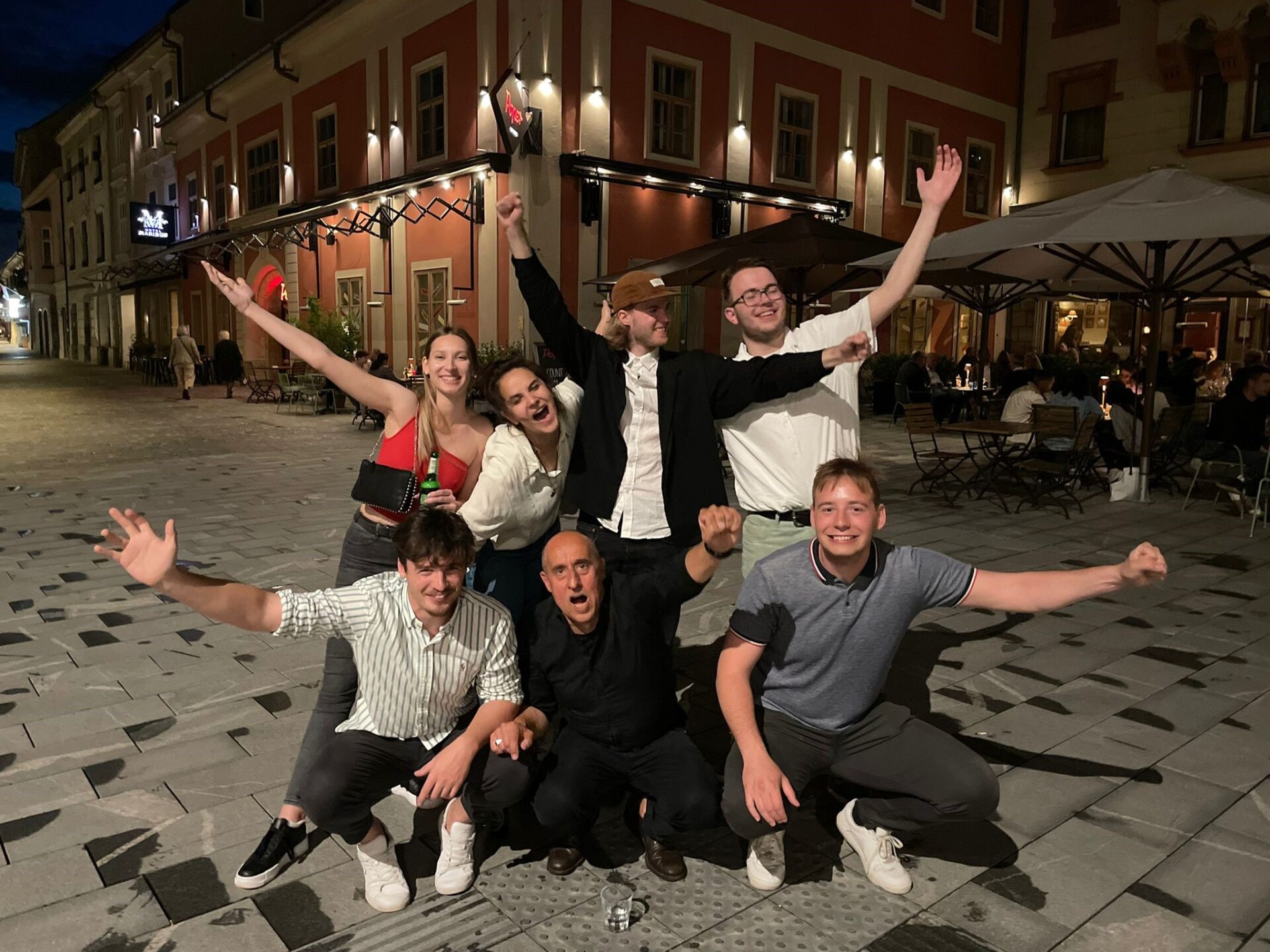
The NEPTUNE Maribor SoundScape promenade Winners!
#SavoniaAMK
NEPTUNE 2022 Maribor SoundScape Promenade was held in 5–14 May and The Winner is “Fountain of Knowledge”.
Group 1 // Coach: Prof. Dr. Peter Schwehr HSLU Lucerne, Switzerland
Students:
Aapo Wihersaari (Finland), Iban Bikowski (NL), Jakob Dugonik (Slovenia), Maja Kukovicic (Slovenia), Mihael Novak (Croatia), Selina Rea Widmer (Switzerland).
“I am so privileged to be able to work with such talented future professionals on NEPTUNE. The students ability to collaborate fruitfully between people from different cultures and disciplines gives great joy and brings back hope in these difficult times we share at the moment. Every group in the competition faced the challenge fearlessly and with a direct aim to change the world for the better. Kudos to all. And special thank You to all good people from Genelec who helped us to make our dream about the project to reality.”
Jarkko Surakka NEPTUNE-Project Leader, Savonia UAS.
The challenge is jointly conducted by Savonia University of Applied Sciences in Kuopio, Finland and Jarkko Surakka, project leader for NEPTUNE (Network for Environmental Projects United in Europe). NEPTUNE is an intensive programme for selected top-level students from four esteemed partner institutions located in Finland, Slovenia, Switzerland and Holland.
For this challenge, six teams of five students will aim to alleviate the problem of private spaces being favoured for arts investment, which reduces the public’s access to many creative works. Under the guidance of a group of experienced mentors, including experts from Genelec, each team will create an outdoor roofed-stage design intended for one of three areas in Maribor, and present their plan to a jury. Ultimately, their ideas may be used to show other building owners and developers that refocussing some investment on outside areas can increase public engagement, nurture local community spirit and encourage diversity.
Furthermore, the teams are tasked with incorporating sustainable materials into their designs to minimise the level of environmental impact.
The event takes place from the 5th of May until the winning design team is announced eight days later, on the 13th. All the students selected to participate are from the following four higher-education institutions:
- Savonia University of Applied Sciences, Finland.
- University of Maribor, Slovenia.
- Hochschule Luzern Technik und Architectur, Switzerland.
- NHL University of Applied Sciences, Holland.
We wish the teams every success and look forward to seeing the fruits of their creativity!
Follow #NEPTUNE2022 and this page for an update about the winning team and their design, which we’ll publish after the event.
Here is the concept and description of the winning team with Jury comments
From the closed house of the university and the park that is only used as a transit route, an open knowledge landscape is emerging that is networking with the rest of the world. A place where solutions for the future are discussed and designed in co-creation between the most diverse stakeholders.
Symbolically, the formerly disused fountain on the square will become a reactivated contact point for those thirsty for knowledge. The interventions in the park are minimal and are oriented towards a fixed and spontaneous concept of use at all times of the day and throughout all four seasons. Individuals can obtain specific information via loudspeakers integrated in a bench or on a billboard. Flexible furniture allows settings in various group sizes up to entire festivals of up to 500 people on site. All events will also be broadcast around the world, specifically promoting knowledge sharing and networking.
JURY DECISION
The jury particularly praised the social relevance of the idea. The minimal spatial interventions and the respectful treatment of the site were also highly appreciated. True to the motto: “Less is more”, a clear spatial statement was nevertheless postulated. The place provides the necessary platform for knowledge exchange and networking with many stakeholders in society. Taking into account the time of day and season, the group developed specific proposals for playing the place, but without prescribing the programme. This resulted in a resilient spatial concept in which spontaneous appropriation, adaptation and realignment are possible at any time.
A well thought-out and coherent storytelling in the presentation convinced the jury to a high degree and underlined the seriousness of the present concept. The concept led to intense discussions about the future contribution of schools and universities to a better world.
For more info about NEPTUNE-project please contact NEPTUNE project leader jarkko.surakka@savonia.fi.